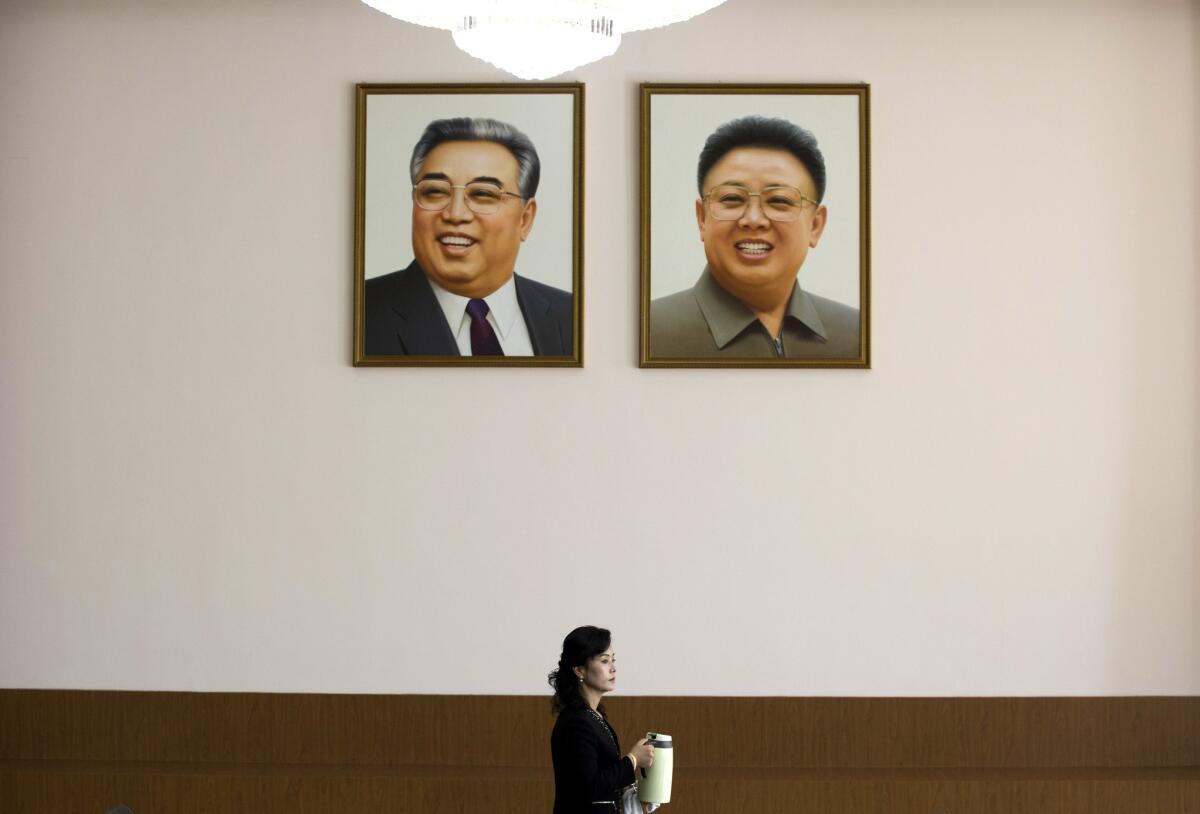The strange, spare contents of a North Korean bookstore

- Share via
The Portuguese writer Jose Luis Peixoto saw many strange things on his visit to Pyongyang, North Korea. A grocery store with a box of onions, kimchi and not much else on offer (“No pictures, please!”). And the first hamburger joint in Pyongyang, where there were just 12 people in line (all from his tour group), and he waited an hour for his food.
Peixoto is the author of the novels “Blank Gaze” and “The Implacable Order of Things,” the titles of which coincidentally offer apt descriptions of his 2012 visit to the Hermit Kingdom. This month the journal Ninth Letter is publishing serialized excerpts of his North Korea travelogue on its website. In “Inside the Secret,” Peixoto recounts what he saw during a 15-day packaged “Kim Il Sung’s 100th Birthday Ultimate Mega Tour.”
The most recent installment relates Peixoto’s visit to the Foreign Language Bookshop in Pyongyang, the North Korean capital. There were, apparently, no books by foreign writers. Peixoto says that “most of the books for sale were the complete works of Kim Il Sung and Kim Jong Il translated into various languages, or books about them.”
The literary fiction section had scant offerings. Many of them had been written by the Late Great Leader, or by unnamed Communist Party literary apparatchiks.
“I bought a copy of everything they had,” Peixoto writes. His purchases included “an anthology of folk tales called ‘The Legends of Pyongyang’ translated into French; a long epic poem in English called ‘Mount Paektu’; a novel entitled ‘Sea of Blood,’ adapted from the famous revolutionary opera.” Said opera is credited to Kim Il Sung, while the adaptation was written by the ChoSeon Novelist Association of the 4.15 Culture Creation Group.
Peixoto also found “a novella set in wartime called ‘The People of the Fighting Village,’ written by the director of the prose sub-committee of the Central Committee of the Korean Writers’ Union; and ‘A Usual Morning,’ a collection of short stories by various authors, the first of which (the title piece of the collection) narrates how the Great Leader, personally, resolves the problems of an agricultural cooperative and rewards the efforts of a young comrade.”
And finally, Peixoto’s purchases included another book, which “despite not being in the literary fiction section, seemed to me could be read in the same light. It was called ‘The Democratic People’s Republic of Korea: an Earthly Paradise for the People.’ ”
More to Read
Sign up for our Book Club newsletter
Get the latest news, events and more from the Los Angeles Times Book Club, and help us get L.A. reading and talking.
You may occasionally receive promotional content from the Los Angeles Times.










